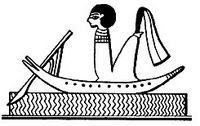At
Tomorrow"s Trust, John Borst blogs about Catholic education in Canada and he recently responded to
developments in Ontario regarding public funding of faith-based schools. For background, he posted
his 2002 essay that reviews John Miller's
Education and the Soul. Borst asks if the Ontario Public School Boards’ Association (OPSBA)
"...trustees choose the “Secular” option, does it necessarily mean we have to have a public system devoid of any spirituality? John P. (Jack) Miller, in Education and the Soul: Toward a Spiritual Curriculum would say no. Thomas Moore, in his [foreword], defines "soul stuff" as "imagination, heart, [and] creativity," "spirit and vision". Miller attempts to reflect on the emptiness of an education based on materialism and sees "soulness" as a "global awakening" in which people "are awakened to the sense of the sacred and the interconnectedness of life."
Miller calls for an education of the whole person, classrooms full of vitality, a balance between the inner and outer, the rational and intuitive, the qualitative and quantitative and a need to face the "big" questions of life. Clearly, this is a long way from the pragmatic, individualistic, and competitive world of neo-liberal and neo-conservative education practiced in most of Canada today.
The book is divided into two parts: "Exploring Soul" and "Nurturing Soul." The former explores both traditional religious and philosophical conceptions of the soul and the more contemporary views of Moore, Sardello, Hillman, Borysenko, and Wolf, as well as Miller’s own view. The concluding chapter of the first part, "Love and Work," describes love as devalued to a commodified eroticism and work as only what we do rather than what we are. This ought to be profoundly disturbing to all who really care about the type of future citizen we are creating.
In Part Two, Miller provides many examples from his work with teachers in how to help explore a child’s inner life. Activities such as meditation, visualization/guided memory, dreamwork and autobiographical/journal writing are explored in some detail. He places particular emphasis on the arts (painting, music, drama, writing, dance) and what he calls "earth" education where we see and feel the earth as more than just an "environment," but as having all the "reverence and sensuality” of "home."
Miller also rejects the notion of school as factory and the teacher as automaton. No "ISO 2002 school" would ever promote "holistic learning that integrates body, mind, emotions and spirit". As such, it wouldn’t recognize the importance of the non-verbal, pay attention to the aesthetic, tell stories about itself, have celebrations and rituals, be truthful and authentic about itself, and be a place where people can speak without fear. Similarly, Miller calls for "the soulful teacher," one who is contemplative, reflective about their students, their teaching and their self, and is aware of techniques to achieve such inner space.
I suspect Miller’s vision of education would be as controversial for many public school trustees as the outright teaching of religion in public schools. In fact, Miller admits that his ideas have found more receptivity in the Catholic schools of Ontario than they have in their public school counterparts.
In the 18 November 2006 edition of the
Toronto Star, columnist Ian Urquhart wrote about
the set of principles adopted by the Canadian Jewish Congress (Ontario region) for governing provincial funding of religious schools.


